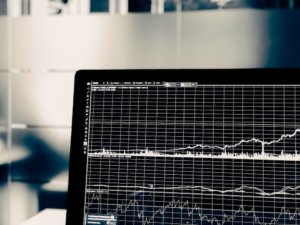Ex-Deutsche Bank traders seek to compel US Govt to make further trading data disclosures
James Vorley and Cedric Chanu, who are accused of spoofing, argue they should not be left guessing on which actual trades the government considers fraudulent.

James Vorley and Cedric Chanu, the former Deutsche Bank precious metals traders accused of spoofing, are seeking to obtain more disclosures from the United States Government regarding the trading data that will be the principal evidence at trial.
On January 10, 2020, the defendants submitted a motion to compel with the Illinois Northern District Court. The motion, along with the accompanying memorandum, outlines the traders’ arguments for seeking further data disclosures from the US authorities.
The government filed criminal charges against Vorley and Chanu in January of 2018 and obtained the original indictment in July 2018. Now, in 2020, as their trial just a few months away, the defendants argue that the government refuses to identify with specificity the trading records that will be the principal evidence at trial.
Vorley and Chanu insist that they should not be left guessing on such basic points as the actual trades that the government considers fraudulent.
The traders explain that the government originally disclosed a list of approximately 250 “Events” that it said “comprised the universe of Events from which the government may seek to introduce evidence of Fraudulent Orders in its case-in-chief at trial.” The lists of “Events” were accompanied by “summary tables” that specifically identified the orders that the government at trial would seek to prove were “Fraudulent.”
Over a year later, however, the government has abruptly changed course, the traders say. The Government intends to present evidence of 150 “Episodes”—only a handful of which were on the government’s original list of relevant “Events.” Of the 150 “Episodes,” the government recently disclosed a subset of 86 “Displayed Episodes” that it claims it intends to have one or more of its witnesses “march through” in some detail at trial. Unlike the earlier lists of “Events,” the government’s new lists of “Episodes” identify trading sequences by approximate start time and end time, but do not identify the specific orders that the government considers to be “Primary Orders” and “Fraudulent Orders.”
According to the defendants, the government’s disclosures concerning the trade data remain inadequate in three ways.
First, by refusing to identify which of the orders during each “Episode” the government will argue at trial were “Fraudulent,” the defendants are left simply to guess at what specific orders they must be prepared to defend at trial.
Second, the government has refused to limit its presentation at trial to a reasonable number of allegedly “Fraudulent Orders.”
Third, the government has refused to disclose the selection criteria it used to select the “Episodes.”
The defendants request the Court to order the government to disclose: (1) the specific orders entered on the COMEX exchange during the 150 “Episodes” that it claims were “Primary Orders” and “Fraudulent Orders” as defined in the superseding indictment; (2) no more than 10 of the 86 “Displayed Episodes” that it will actually “march through” with one or more witnesses before the trial jury; and (3) the selection criteria the government used to identify the 150 “Episodes” during which the government believes “Fraudulent Orders” were placed.
The indictment alleges that, from December 2009 through November 2011, Vorley and Chanu engaged in a scheme to defraud other traders on the Commodity Exchange Inc. (COMEX) that involved interstate wire communications.
COMEX used an electronic trading system called “Globex,” which allowed traders to trade futures contracts from anywhere in the world. During the relevant period, Vorley worked in London; Chanu worked first in London and later Singapore. The Globex servers, however, were located in Chicago and Aurora, Illinois, and that was the basis for venue in the Northern District of Illinois.
Let’s recall that the indictment alleges Vorley and Chanu sought “to deceive other traders by creating and communicating materially false and misleading information regarding supply or demand, in order to induce other traders into trading precious metals futures contracts at prices, quantities, and times at which they would not have otherwise traded, in order to make money and avoid losses for the coconspirators.”
Vorley and Chanu would place one or more orders for precious metals futures contracts on one side of the market (bid or offer), intending to cancel the orders before they could be accepted by other traders. The indictment refers to such orders as “Fraudulent Orders” because the defendants did not intend to execute them; instead, these orders were “intended. . . to deceive other traders” about the true supply or demand for the commodity in question. The indictment alleges that the Spoofing Orders “were material misrepresentations” regarding the defendants’ intent to trade those orders.
Contemporaneously with placing the Spoofing Orders, the defendants placed what are referred to as “Primary Orders” on the opposite side of the market. Unlike the Spoofing Orders, the defendants intended to execute the Primary Orders, which involved trades that were of smaller volume.
Vorley and Chanu allegedly profited from the scheme because the Spoofing Orders would deceive other traders about supply and demand, misleading them about the likely direction of the commodity’s price and making the defendants’ Primary Orders, on the other side of the market, look attractive.









